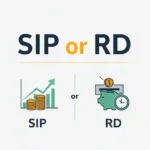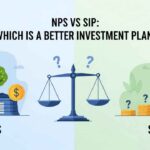The Maharashtra Government Cabinet has recently cleared the exemption of property taxes for residential units of up to 500 square feet in Mumbai. The move is expected to help reduce the financial burden on low-income and mid-income families and make homeownership within their reach for smaller flats and studio apartments.
Tax on property in Mumbai generally consists of general tax, water tax, development tax, education cess, and other charges, depending upon the location, built-up area, and age of the property. Although this exemption is a relief of sorts to hundreds of thousands of small property owners, homebuyers must realize that several other expenses, in addition to the price of a house, still factor in while buying residential real estate.
Following is a description of the primary additional expenditures incurred by buyers even after accounting for any property-tax relief.
1. Stamp Duty and Registration Charges
When you complete buying a house or flat, two of the largest initial outlays are stamp duty and registration charges. These compulsory charges are paid when you register the property in your name, and only once you have paid them are you the legal owner. Significantly, neither of these charges is usually part of the agreed sale price of the property.
1.1 Stamp Duty
- What It Is: Stamp duty is a state-government levy calculated on the property’s market value or circle rate—whichever is higher.
- Rate Variations: Across India, stamp duty rates usually range between 5% and 8%. For example:
- In Maharashtra, stamp duty is approximately 5% of the property’s value.
- In Tamil Nadu, it is closer to 7%.
- Determining Factors: The exact percentage depends on:
- The property’s declared market value or circle rate.
- The age of the building (older properties sometimes enjoy lower duty rates).
- Location (e.g., metropolitan vs. suburban).
- Property type (standalone villa vs. multi-story flat).
- Impact: On a ₹50 lakh property, a 5% stamp duty alone translates to ₹2.5 lakh—an expense separate from the loan EMIs or down payment.
1.2 Registration Charges
- What It Is: Registration charges cover the official record-keeping transaction when ownership transfers from the seller to the buyer.
- Illustrative Example: In Maharashtra, registration charges are commonly around ₹30,000, though this can vary slightly depending on municipality rules and the property’s declared value.
- Who Pays: The buyer is responsible for registration fees—whether the property is newly constructed or a resale. Without paying registration, legal title cannot be transferred.
2. Brokerage (Real Estate Agent Fees)
Few home buyers hire real estate agents (brokers) to find homes, arrange property visits, negotiate, and complete purchases. Not required, this service often costs:
- Who Pays: Depending on local custom, either the buyer, the seller, or both split the brokerage fee. In most resale transactions, the buyer pays the broker.
- Typical Range: Brokerage usually falls between 1% and 3% of the final sale price.
- Example Calculation: On a ₹50 lakh resale apartment, a 2% brokerage equals ₹1 lakh—money that does not contribute to your property’s value but must be budgeted nonetheless.
Buyers should clarify brokerage expectations in advance, ideally in writing, to prevent last-minute surprises.
3. GST (Goods and Service Tax) on Under-Construction Properties
While ready-to-move-in residential units and resale properties do not attract GST, under-construction projects do:
- Standard GST Rate: 5% on the property’s basic sale value.
- Affordable Housing Category: For projects categorized as “affordable housing” (subject to government-defined carpet-area and price thresholds), GST is 1% without an input tax credit (ITC).
- No GST on Ready/Resale: If the builder has received the Occupancy Certificate (OC) and the property is ready, GST does not apply. Similarly, resale transactions between private parties carry no GST.
As GST is levied only on under-construction properties, homebuyers need to factor in this tax when planning to buy a new flat still in construction.
4. Maintenance and Recurring Local Taxes
Once you take possession of your home, monthly and annual expenses come into play:
4.1 Maintenance Charges
- What It Is: Maintenance fees cover the upkeep of common areas, security, waste management, landscaping, and any shared amenities (e.g., a gym, clubhouse, swimming pool).
- Who Pays: All owners (or tenants) in an apartment complex or gated community must contribute.
- Budgetary Impact: Although smaller than one-time charges, maintenance can run anywhere from ₹1,500 to ₹10,000 per month (depending on location and facilities), and it rises annually. Buyers should factor these recurring costs into their overall household budget.
4.2 Property Tax and Other Local Levies
- After the Waiver: While properties up to 500 sq ft in Mumbai now enjoy full property-tax exemption, larger homes and homes in other areas do not.
- What It Covers: Property tax usually includes:
- General tax (a base municipal tax).
- Water tax (for water-supply infrastructure).
- Development tax (for local urban improvements).
- Education cess (a small percentage earmarked for schooling infrastructure).
- Annual Expense: For a mid-range Mumbai flat larger than 500 sq ft—say 800 sq ft—property tax might run ₹10,000 to ₹20,000 per year, depending on the circle rate and assessed value.
- Plan Ahead: Always check with your local municipal corporation for the exact property tax estimate before finalizing a purchase.
5. Other Miscellaneous Charges
Even after accounting for the major fees above, homebuyers should not overlook smaller but still important costs, which can add up over time:
- Notary and Legal Fees
- At the time of registration, certain cities require a notary stamp or official witness signatures on sale documents. Notary charges might range from ₹500 to ₹2,000 depending on the document’s complexity.
- If you engage an external legal counsel to review title documents, you may pay ₹5,000 to ₹20,000 in legal fees, depending on the lawyer’s experience and the transaction’s complexity.
- Parking Fees
- Some developers charge an additional one-time fee for a covered parking space, often ranging from ₹1 lakh to ₹5 lakh, depending on the micro-market.
- In high-demand areas like South Mumbai, reserved parking spots in a new project can even exceed ₹10 lakh.
- Furnishing and Interior Fit-Out
- Most new buyers furnish their homes after possession. Interior design packages (wardrobes, modular kitchens, bathroom fixtures, flooring, painting, lighting) can easily cost ₹2 lakh to ₹10 lakh—depending on the scope and quality.
- Budgeting for these costs in advance helps prevent financial strain once you move in.
- Private Terrace/Balcony or Additional Open Space
- If you value a private terrace or garden space, developers often charge a premium—typically ranging from ₹1,000 to ₹3,000 per square foot—above the base carpet area rate.
- Homebuyers should confirm whether such extra spaces come at a higher per-square-foot price and include it in the total transaction cost.
How Much Over and Above the 50 Lakh Property Price? — A Hypothetical Illustration
Suppose you purchase a ready-to-move-in apartment in suburban Mumbai for ₹50 lakh (market value). Even with the Maharashtra government’s property-tax waiver for units up to 500 sq ft, you may still incur:
- Stamp Duty (5%): ₹2,50,000
- Registration Charges (approx.): ₹30,000
- Brokerage (2%): ₹1,00,000 (if a resale property)
- Maintenance Deposit/Advance: ₹50,000 (one-time; varies by society)
- Notary Fees and Document Charges: ₹5,000
- Legal Fee: ₹10,000 (for title search review)
- Parking Fee: ₹2,50,000 (for a covered slot)
- Interior Furnishing: ₹3,00,000 (basic modular kitchen + painting)
Total Additional Cost (Approximate): ₹9,95,000
Here, the buyer requires almost ₹60 lakh in cash outlay upfront—₹50 lakh for the flat and almost ₹10 lakh for various charges. Even excluding property tax (for units below 500 sq ft), buyers of bigger flats will have to make careful budgeting for all these additional elements.
Key Takeaways for Prospective Homebuyers
- Don’t Budget Only EMIs and Down Payment
While down payment and equated monthly installment (EMI) amounts grab most attention, the “unseen” expenses—stamp duty, registration, brokerage, GST (if an under-construction property), maintenance, and miscellaneous charges—may leave a sizeable dent in your cash outgo at the time of purchase. - Research State-Specific Rates
Stamp duty and registration fees are state-regulated and vary significantly. Before making an offer, ensure the precise percentages and flat fees from your state’s revenue department or the local sub-registrar’s office. - Compare Maintenance Fees and Amenities
Two buildings can have the same sale prices listed, but their monthly charges and amenity fees can differ drastically. Include periodic expenses like security, power backup, and common-area maintenance. - Negotiate Brokerage Wisely
If you are paying an agent, enter into a fixed brokerage percentage in advance, preferably in writing, to avoid future misunderstandings. - Check for GST on Under-Construction Sales
If you opt for a property that is still under construction, include 5% GST in the basic sale price (or 1% on affordable-housing projects). Ready-to-occupy flats and resale transactions are exempted; hence, find out the unit’s “OC status” (Occupancy Certificate) before signing a booking agreement. - Plan for Interiors and Parking Early
Sellers usually charge extra for parking spaces and luxury terraces and sell them individually at prices much higher than the initial price. Make such decisions wisely—instead of as an afterthought—so they are factored into your total home budget. - Legal Due Diligence Is Non-Negotiable
Hiring a seasoned real estate attorney to check the title documents, builder contracts, and current encumbrance certificates avoids unwanted shocks (e.g., outstanding municipal charges or court proceedings).
Conclusion
Purchasing a home in 2025 is still a major economic milestone. While Maharashtra’s recent waiver of property taxes for dwelling units up to 500 sq ft in Mumbai alleviates the ongoing tax burden for small homeowners, the overall expenses related to buying real estate stretch way past the agreed sale price. By knowing and planning for stamp duty, registration fees, brokerage, GST paid on under-construction properties, maintenance fees, property taxes, and other miscellaneous charges (notary, legal, parking, interiors), potential homebuyers can prevent last-minute shortages and make well-informed, stress-free choices. As the real estate industry continues to change, prudent planning is the optimal solution to ensure that your ideal house does not turn into an economic burden.











